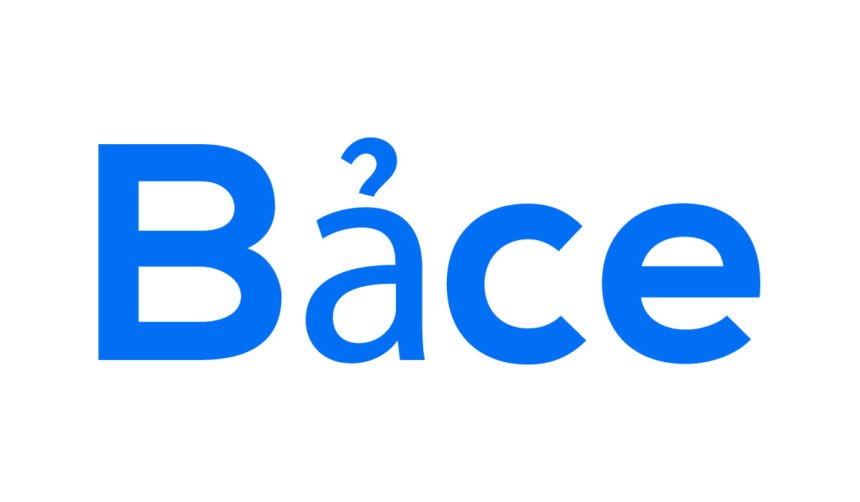Introduction
The word “Bảce” is far more than a random term or a linguistic oddity—it is a multifaceted expression that touches geography, history, science, branding, and modern philosophy. At first glance, its use of the Vietnamese-style accent “ả” suggests linguistic depth, yet the word itself appears in places far removed from Southeast Asia, including European villages, corporate acronyms, and modern minimalist branding. What makes “Bảce” so intriguing is that its meaning shifts depending on where you see it.
For some, it may indicate a small Serbian village. For others, it’s a credential in the biotechnology world, a company name in sustainability, or a visual symbol of modern balance and aesthetic simplicity. In some cases, it’s adopted as a stylized brand in the creative industry. This article aims to explore the many dimensions of Bảce and explain how such a short word has come to carry so much weight across different cultures, technologies, and identities.
The Linguistic Puzzle of “Bảce”
The presence of the special character “ả” in Bảce immediately catches the eye. In Vietnamese, this tonal accent changes the entire meaning and pronunciation of a word. The letter “ả” typically indicates a rising tone in northern Vietnamese dialects, and while “bảce” does not appear in traditional Vietnamese dictionaries, its form is visually similar to Vietnamese words, leading many people to assume it has Southeast Asian origins. However, this may be a case of stylistic branding or linguistic play, where the addition of an accent is more about visual identity and uniqueness than about linguistic heritage.
Additionally, there is historical precedent for the word “bace” in Middle English, where it was used as an old variant spelling of “base.” In some rare dialects, particularly in archaic English texts, “bace” was also used to mean a beating or a blow, possibly derived from Germanic roots such as the Danish “bask” or Swedish “bas.” These uses have faded but remain part of the word’s evolutionary history, showing how language morphs across time and regions. Therefore, “Bảce” is a linguistic chameleon that wears many hats depending on context—each with historical, cultural, or visual intent.
Bace as a Place – The Village of Bače, Serbia
In geographic terms, Bače (pronounced “Bache”) is a real village located in the Toplica District of Serbia, specifically in the municipality of Prokuplje. Written in the Serbian Cyrillic alphabet as Баце, this small rural settlement is home to fewer than 300 residents, according to early 2000s census data. Life in Bače revolves around agriculture, traditional village customs, and close-knit community structures. The village is a reminder that words like “Bảce” can take on very real and tangible meanings beyond symbols and acronyms. For people tracing Balkan ancestry or studying rural European settlements, this village often appears in historical documents, travel records, and demographic databases.
The spelling of place names like Bače can vary across Latin and Cyrillic alphabets, adding to the confusion when transliterated or stylized in other languages. If “Bảce” appears in the context of maps, regional descriptions, or family history documents, it’s quite possible that it refers to this modest Serbian village, which may seem small on a map but carries cultural significance for those who call it home.
BACE as an Acronym in Science, Industry, and Finance
A major dimension of the word BACE emerges in the world of acronyms, where it stands for several high-impact terms across science, engineering, and finance. One of the most widely known meanings is the Biotechnology Aptitude and Competency Examination (BACE)—a national credentialing program in the United States, particularly for students and entry-level professionals aiming for a career in the biosciences.
Administered by Biotility at the University of Florida, this exam tests theoretical knowledge and hands-on skills in molecular biology, lab safety, and data analysis. Passing BACE provides a digital badge system and industry-recognized certification aligned with DACUM standards, making it a valuable asset for job seekers in biotech. In another industry, BACE, LLC stands for Baler and Compaction Equipment, a U.S.-based company specializing in waste management technologies like recycling balers and compactors. Their proprietary system, IntelliBACE™, uses data analytics to monitor and improve waste efficiency in commercial operations.
There are also financial interpretations of BACE, such as Banque Algérienne du Commerce Extérieur, a bank that once facilitated trade between Algeria and Europe. Meanwhile, in the medical world, BACE is short for Beta-site APP-cleaving enzyme, a protein linked to Alzheimer’s disease research. The variety of sectors using the BACE acronym—from healthcare and finance to sustainability and education—highlights the vast reach and contextual fluidity of this four-letter term.
Bảce as a Modern Philosophy of Balance
Beyond its technical or geographic references, Bảce has also emerged as a symbolic philosophy of balance in modern culture, particularly among thinkers, artists, and minimalist lifestyle advocates. In this sense, bảce is not a product or a place—it is a state of being. Imagine life as a pendulum swinging between extremes: chaos and calm, ambition and rest, presence and distraction. Bảce is the fleeting moment in the center of the swing, the point of alignment where inner peace meets external action. While not rooted in any formal religious or spiritual practice, the concept echoes wisdom from philosophies such as Taoism, Stoicism, and mindfulness.
It invites people to stop reacting and start observing—to replace burnout with rhythm and perfectionism with presence. Practicing bảce in daily life might mean embracing slow living, taking time to breathe before speaking, or working with focused intent rather than frantic speed. It’s a modern reminder that peace isn’t the absence of conflict but the presence of harmony—within ourselves and with the world around us.
Bảce in Art, Branding, and Design
The concept of Bảce also thrives in the world of art and branding, where minimalist design, visual balance, and linguistic uniqueness are paramount. Designers and entrepreneurs often choose names like Bảce because of their brevity, memorability, and aesthetic edge. The use of the diacritic “ả” immediately sets the name apart in search engines, improving SEO visibility and making it easier to trademark or register online.
In fashion, for instance, Bảce could be used as a gender-neutral streetwear label symbolizing equilibrium and quiet rebellion against fast fashion chaos. In music, a solo artist might adopt the name Bảce to reflect both cultural fusion and emotional depth, using the name as a vessel for expression.
Artists influenced by wabi-sabi (the Japanese appreciation of imperfection and transience) may also find bảce resonates with their work. In visual design, the curved line of the “ả” and the symmetry of the word make it perfect for logos, album covers, or digital art. Essentially, Bảce becomes a creative identity, not just a word but a statement—one that merges tradition with futurism, simplicity with meaning, and global influence with local style.
Bảce as a Global Symbol in Sport (Football)
Another layer of Bảce appears when interpreted through the lens of football, the most popular sport in the world. In stylized or colloquial use—especially in digital art, memes, or niche cultural blogs—“Bảce” is sometimes seen as a playful variant spelling of “football” or a brand-like term used to give a fresh, global twist to the sport. Football (soccer) transcends borders and languages, much like bảce as a concept.
It is both fiercely competitive and deeply unifying, combining high energy with global camaraderie. From FIFA World Cups to local village matches, the game builds connections, identity, and pride. If bảce is used to represent football, it likely symbolizes not just the game itself but the spirit of balance that makes the sport so compelling—discipline and flair, individual skill and team harmony, passion and strategy. In this interpretation, bảce becomes a metaphor for how sport brings the world together in rhythm and rivalry.
How to Identify What “Bảce” Means in Context
Understanding what Bảce means requires attention to context. If you see the word in a scientific journal or biotech job listing, it’s almost certainly the BACE biotechnology credential. In a sustainability report, it might refer to BACE, LLC and its environmental equipment.
On a travel map or genealogy site, it may point to Bače, the Serbian village. In a creative portfolio or Instagram profile, the word could be a stylized branding identity or philosophical concept. And if you hear it in poetic or lifestyle discussions, it may symbolize a personal practice of balance and awareness. Because it is so versatile, Bả ce functions like a mirror—reflecting whatever is around it. The key to unlocking its meaning lies in surrounding clues: the industry, the platform, the culture, and the tone in which it’s used.
Why Words Like “Bảce” Matter in a Digital Age
In today’s world of digital overload, algorithmic communication, and brand saturation, words like Bảce gain importance for their conciseness, uniqueness, and symbolism. The rise of ultra-short names (e.g., Lyft, Duolingo, Meta) is rooted in their high recall value, minimalist aesthetic, and ability to traverse global audiences. The accented “ả” in Bả ce creates a typographic signature, instantly setting it apart from lookalikes.
For branding, this diacritic makes it easy to rank on Google, secure domain names, and create a strong visual identity. Beyond search engine benefits, such terms reflect a shift in language—from bulky explanations to distilled meaning. They embody the digital-native generation’s preference for depth through simplicity and individuality through universal appeal. Bả ce is not just a word—it is a cultural marker of how we now name things, build identities, and create emotional resonance in short, powerful forms.
Conclusion
In the end, Bảce is a word of remarkable flexibility. This can be a place, an acronym, an emotion, a mindset, or a brand—depending on when and where you find it. It connects the past with the future, science with spirituality, and industry with art. It invites us to examine not just the word itself but the system of meanings that give it life. From a quiet village in Serbia to a global philosophy of balance, from biotech certification to branding design, bả ce reminds us that context is everything, and that words can carry layers of history, hope, and human expression. In a noisy world, Bảce encourages us to pause, breathe, and seek harmony—and in doing so, to rediscover the hidden beauty of simplicity.
FAQs
1. What does “Bảce” mean?
“Bảce” is a multi‑meaning word that can refer to a Serbian village, a biotechnology certification (BACE exam), a waste‑management company, or a modern philosophical concept of balance. Its exact meaning depends on the context where it appears.
2. Is “Bảce” a real place?
Yes. Bače (written in Serbian Cyrillic as Баце) is a real village located in the Prokuplje municipality in Serbia. It is a small rural community with fewer than 300 residents.
3. What is the BACE exam in biotechnology?
The BACE exam stands for the Biotechnology Aptitude and Competency Exam. It certifies entry‑level bioscience skills, is recognized by industry employers, and is issued through Biotility at the University of Florida.
4. Why does “Bảce” have an accent mark on the letter “a”?
The accent mark resembles a Vietnamese tonal character and makes the word visually unique. In modern branding, it is often used for stylistic reasons to improve recognizability, search results, and digital identity.
5. How can I understand what “Bảce” means in a document?
Look at the surrounding topic. If the text is about geography, it may mean the Serbian village. In biotech, it likely refers to the BACE exam. In branding or design, it often symbolizes balance, minimalism, or creativity. Context reveals the correct meaning.
You may also read: Cbybxrf Uncovered: The Powerful Key to Future Innovation
For More Information, Visit Dotmagazine









